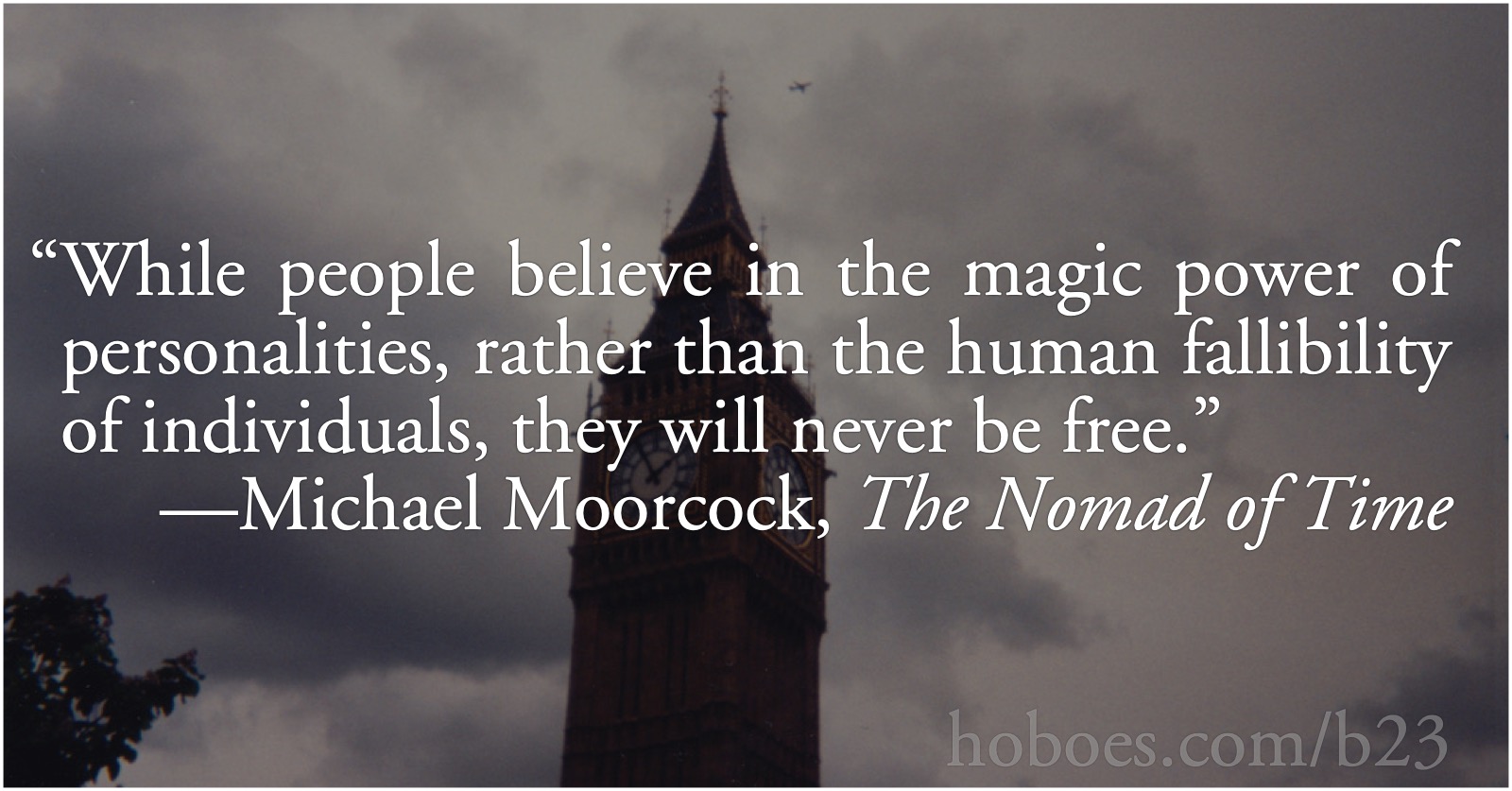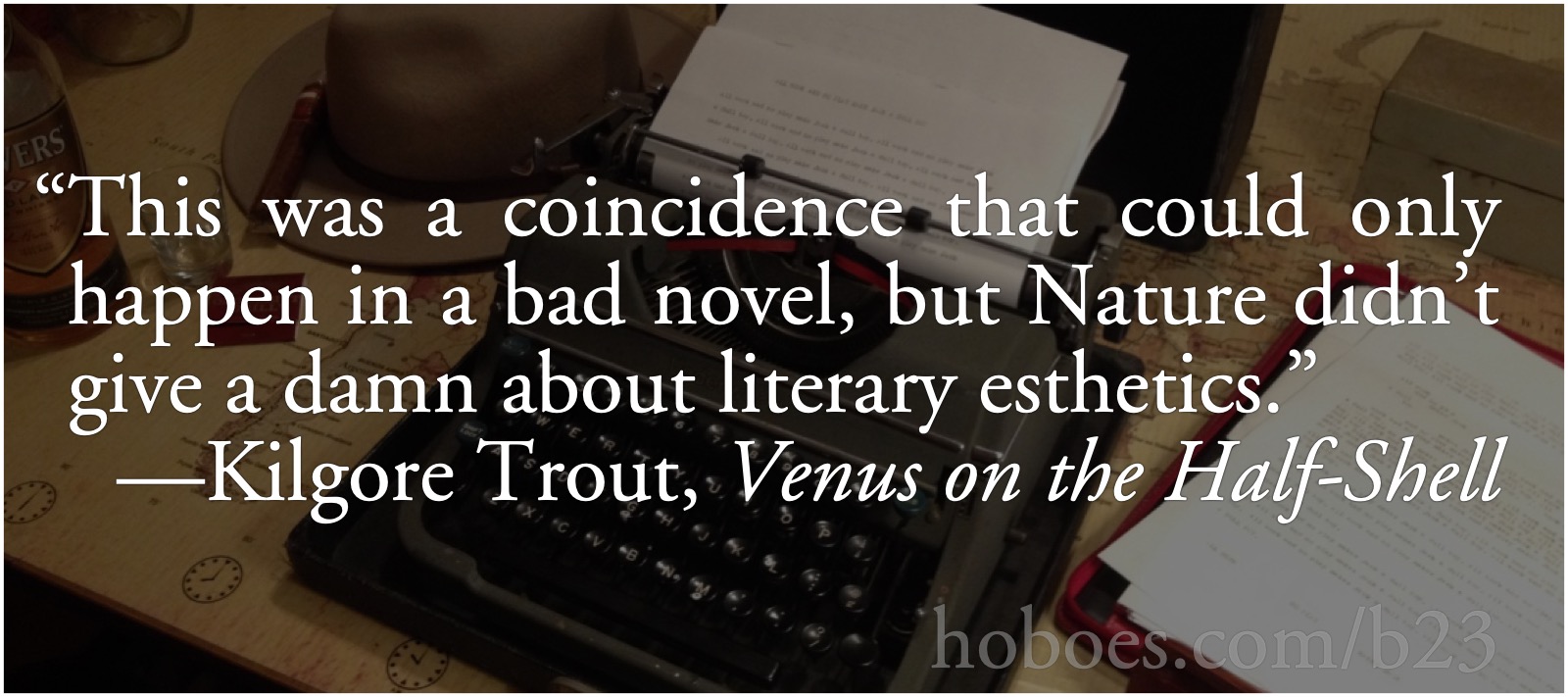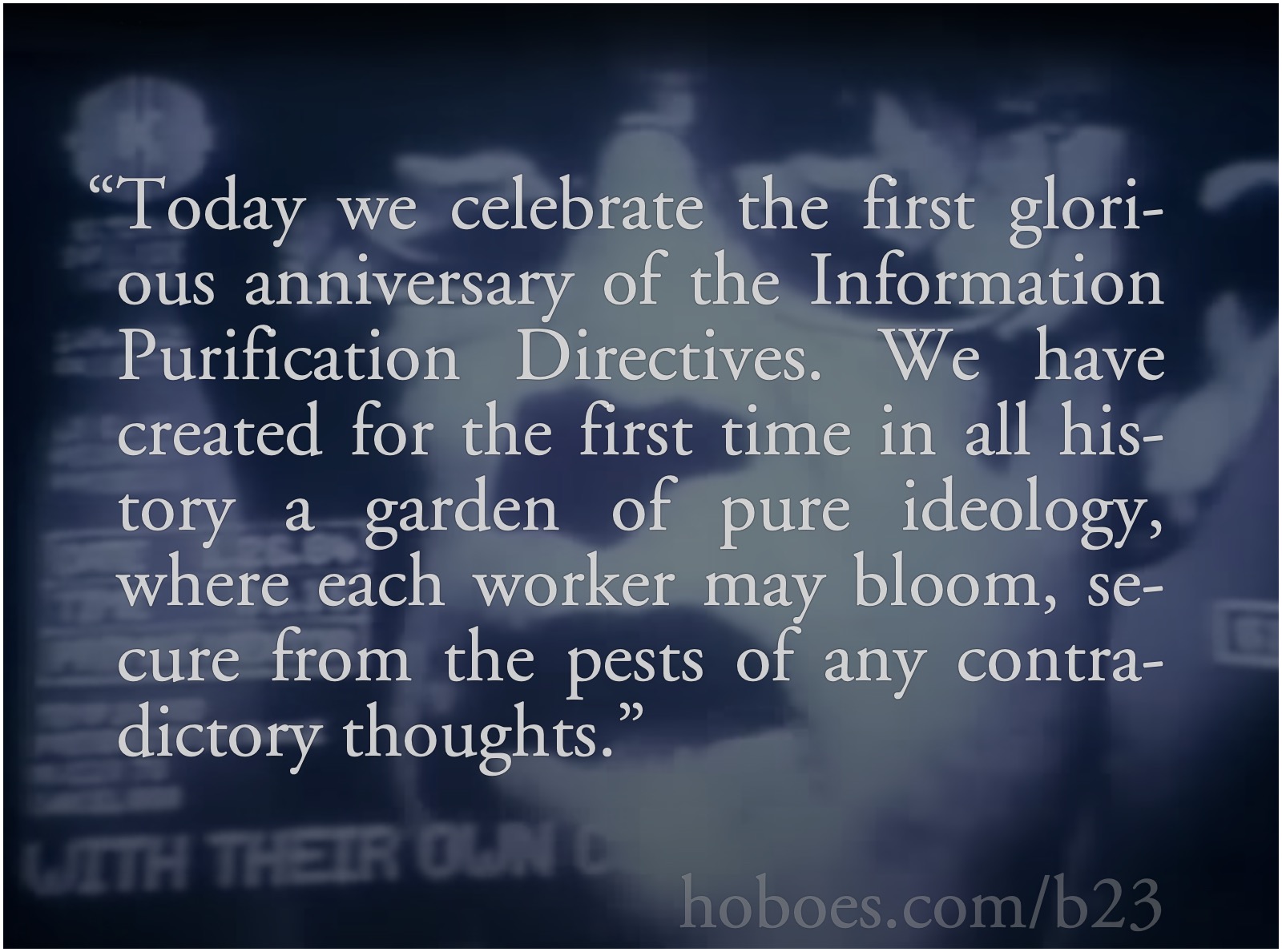My Year in Books: 2023
This was a relatively slow year for books. According to Goodreads, I read an even 100, but quite a few of them were cookbooks. I’ll be writing about them later in 2023 in Food. Fictionwise, I started the year with Jack Vance’s Eight Fantasms and Magics. You could hardly do better. Vance is a master of fantasy, and a pretty good hand with science fiction as well. Especially when his science fiction looks like fantasy.
The green light floods the planet, and I prepare for the green day.
I ended the year with Lee Gold’s marvelous fantasy Valhalla: Into the Darkness. Gold is the proprietor of the Alarums & Excursions roleplaying zine (of which I’m a part) and shows the true role-player’s dedication to accurate mythology. While the dead role-player who was the protagonist of the first book remains here, this book’s protagonist is an Internet-obsessed squirrel who lives on the world tree.
I sang as I ran, and I never got tired. I was inspired, rhymes blazing like fire. I can’t even begin to tell you what it was like. When I ran across a patch of ash honey, and the bees swarmed up and stung me, I cried out in joy, because I knew just how they felt.
If you enjoy weird fantasy with a fairy-tale bent that’s deeply rooted in real mythology, you will enjoy Gold’s series.
I read three sailing books toward the end of the year, although only two really count. I finally got around to reading Patrick O’Brian’s Master and Commander; while reading that in paperback, I also started up a new ebook, David Weber’s On Basilisk Station, the first of the Honor Harrington series. I had no idea when I started it that it was clearly either inspired by Master and Commander or by the same books that inspired Master and Commander.
Both were wonderful, and a great juxtaposition of historical fiction with far future fiction. In a sense, they’re both a very similar flavor of hard sf, with O’Brian’s focusing on the rapid ascension of science—even among the arts—at the turn of the nineteenth century.
I also reread Jonathan Swift’s Gulliver’s Travels, which, while technically a sailing book, only really gets into sailing to make fun of sailing books.
At least, I think that’s what Swift was doing. I know I’m not getting all of the jokes in Gulliver’s Travels, and may be attributing parody to passages that were serious. Swift is a difficult read, mainly, I suspect, because what he’s satirizing is very much rooted in his own era. Occasionally, however, he does tap into universal human failings.
[The Laputians] are so perpetually alarmed with the apprehensions of these, and the like impending dangers, that they can neither sleep quietly in their beds, nor have any relish for the common pleasures and amusements of life. When they meet an acquaintance in the morning, the first question is about the sun’s health, how he looked at his setting and rising, and what hopes they have to avoid the stroke of the approaching comet. This conversation they are apt to run into with the same temper that boys discover in delighting to hear terrible stories of spirits and hobgoblins, which they greedily listen to, and dare not go to bed for fear.
Swift is so much a part of our cultural background that he’s worth reading but for me at least Gulliver’s Travels is bits of anachronistic humor surrounded by interminable rambling.
On the nonfiction side, I happened across Andy Hertzfeld’s Revolution in the Valley and realized I had wanted to read it since spending way too much time nearly two decades ago browsing his website of Apple anecdotes, anecdotes of a time that even then was becoming hard to believe really happened. The Macintosh came in at the tail end of the home computer revolution. Early successful computers were designed by individuals with vision. Later ones were designed by corporate teams with spreadsheets and conference calls. The Macintosh was designed neither by one or two individuals nor by a corporate team, but by a band of brilliant and untamable kids, chosen because they shared a vision of a kind of computer that was technically impossible.
The goal… was to do the greatest thing possible, or even a little greater.
Aleksandr Solzhenitsyn’s The Oak and the Calf is a memoir of his life as part of another team of pirates, loosely affiliated, against a seemingly monolithic regime that most people thought was invincible. People in the West thought the Soviet Union was the future.
“All” it took was a bunch of poets and writers refusing to give up to prove the West’s Eloi class wrong. Tyranny is rarely monolithic. It only appears that way because too many people are afraid to stand out. That makes those who do stand out far more powerful.
The Oak and the Calf is not just about life under repression, but about living free under repression. I have a standard rejoinder when people say about proposing some reform that “but person X and group Y will never agree to that.”
Well, fine, but make them say it. Don’t let them get away with pretending they’re for reform when they’re really just mouthing platitudes they don’t ever expect to be called on. Much of the effort of Solzhenitsyn and his colleagues was the very difficult task of making the Soviet Union’s bureaucrats say the obviously unsupportable.
The two standouts this year were Philip K. Dick’s A Scanner Darkly and James D. Hornfischer’s Last Stand of the Tin Can Sailors. Scanner is one of those books that have become so ingrained in our culture, at least among science fiction fans, that I forgot I’d never actually read it. When I ran across it in a library sale last year, my first thought was, what copy do I already have? And then, going into my inventory database and review database, How can this be? I don’t already have a copy?! I’ve never read it at all?
It’s almost not right to categorize A Scanner Darkly as fiction. Despite the weird science fiction trappings, the scramble suits and the holocubes and the Substance D, it is incredibly realistic. These are real people addressing the issues we address now in our heavily-networked surveillance culture.
“I used to be the same age as everyone else.“
“I think so was I,” Arctor said.
“I don’t know what did it.”
“Sure, Luckman,” Arctor said, “you know what did it to all of us.”
Last Stand of the Tin Can Sailors, on the other hand, is so unreal it’s hard to believe it’s nonfiction. A bunch of “tin cans” meant for supporting amphibious landings were surprised by four Japanese battleships off of Samar in the Leyte Gulf. They were outgunned and outnumbered, against faster ships with better armor and bigger weapons.
They held out for two hours, in what should have been a quick defeat. Man and machine pushed well beyond their limits. I will say no more. Read it.
I’m only realizing now as I write this, but all three of these nonfiction books are about people who changed the world. The Macintosh team at Apple were the last gasp of the old-school hacker’s ethic that just because something’s impossible, it doesn’t mean we can’t build it. For all the problems we have with our computers today, with how we interact with the world through them, we have the option to be in charge because of the people Hertzfeld wrote about. A year or two later and it would have been too late for that kind of vision and that kind of team.
Enthusiasm is contagious, and a product that is fun to create is much more likely to be fun to use.
It was already late enough that one of the most amazing features of the Macintosh was killed by corporate bean counters who had no idea the value of their beans. The BASIC development environment that had been meant for the Macintosh was so amazing that even on the black market it was popular enough to justify multiple published books about how to use it. It was killed in favor of Microsoft BASIC, a perfect example if ever there was one of the kind of future we might be looking at today if it hadn’t been for the Macintosh team’s ability to go to the limits of the possible—and then just an inch or so beyond.
Without the refuseniks and literary rebels of the Soviet Union, the West would have been able to ignore the evils of socialism—as many in the West still want to do. Solzhenitsyn and others didn’t just force the Soviet Union to change, they forced us to change, forced us to see that not only does evil exist but that it must be fought.
People in the West simply will not understand this, and are forever hoping to mollify them with concessions.
Hornfischer’s story of the “Tin Can Sailors” is much like Hertzfeld’s, with a lot more bloodshed. Like Solzhenitsyn and his colleagues, what they did was impossible on paper. But they did it anyway.
All of them changed the world. It’s difficult to imagine what our present would be like had they failed to stand up to what others called inevitable. That’s something we need to remember today, or we’ll throw away what they did for us. What seems impossible, what seems inevitable, what seems invincible, is often only so because we don’t make them say it.
You know what did it to all of us.
In response to The Case for Books in 2015: In 2015, I read a lot of books… and bought a lot more. That’s not a sustainable market plan.
2023
- Goodreads: Year in books 2023 at Jerry@Goodreads
- A lot of good fantasy, and a lot of good food in 2023. But also some fascinating nonfiction about impossible odds—about the limits of both man and the universe.
- My Year in Food: 2023
- From Italy to the Ukraine—some of it real, and some through cookbooks—this has been a great year for food.
book reviews
- Review: Gulliver’s Travels: Jerry Stratton at Jerry@Goodreads
- Much of Swift’s era is so unbelievable as to make the satire unbelievable, too. Some of it remains funny, but a lot of it has become obscure as the things Swift thought important are no longer common knowledge. Often heavy-handed, but it’s hard to fault the author of A Modest Proposal for going overboard.
computer history
- Macintosh 1984 commericial
- Macintosh’s 1984 ad riffing on 1984. “Today we celebrate the first glorious anniversary of the Information Purification Directives. We have created for the first time in all history a garden of pure ideology, where each worker may bloom, secure from the pests of any contradictory true thoughts.”
- Macintosh BASIC from Byte Magazine: Scot Kamins at Internet Archive
- “A semicompiled language with tools designed to simplify the writing of code.”
fiction
- Review: A Scanner Darkly: Jerry Stratton at Jerry@Goodreads
- Perhaps the most realistic of all Dick’s science fiction. Who are the men behind the scramble suit masks?
- Review: Eight Fantasms and Magics: Jerry Stratton at Jerry@Goodreads
- With a wonderful cover by Anthony Sini, you can definitely judge this book by its cover. “Flights into the regions of the paranormal” and filled with great short stories by Jack Vance.
- Review: Master and Commander: Jerry Stratton at Jerry@Goodreads
- You could probably learn sailing from this book, which follows Jack Aubrey’s command at the cusp between naval service as high-seas adventure and modern naval operations.
- Review: On Basilisk Station: Jerry Stratton at Jerry@Goodreads
- An aging, underweight ship, gutted of its few useful weapons, is left to manage possibly the most important and otherwise undefended points in the Empire.
- Review: Valhalla: Into the Darkness: Jerry Stratton at Jerry@Goodreads
- “Between one hope and another I fell asleep. There are signs and portents, of course, and a romp through the Nine Worlds, and also… an Internet-obsessed squirrel living on the World Tree.
non-fiction
- Murrow: His Life and Times
- Edward R. Murrow inspired generations of journalists with his reports from the London blitz on radio and, later, his reports on McCarthyism on television.
- Review: Last Stand of the Tin Can Sailors: Jerry Stratton at Jerry@Goodreads
- This is an amazing story, taken from documents and interviews, about a bunch of smaller ships confronted by four Japanese battleships, surprised, outgunned, and outnumbered. Hornfischer deftly supplies the important technical details, the confusion, the daring, and the chaos of the battle.
- Review: Revolution in the Valley: Jerry Stratton at Jerry@Goodreads
- An inexpensive, turnkey system from Apple? Perhaps not. Unlike its predecessors that were designed by one or two individuals with a vision, or by a corporate team with a spreadsheet, the Macintosh ended up with a team of brilliant, hero-worshiping kids who knew exactly what couldn’t be done… and how to do it.
- Review: The Oak and the Calf: Jerry Stratton at Jerry@Goodreads
- “Solzhenitsyn chronicles the extremely short window of opportunity for literature in the Soviet Union, and his attempts to maneuver around the bureaucracy and confound the censors.”
writers
- Alarums and Excursions: Barry Gold
- “A&E is a photocopied monthly roleplaying game APA (amateur press association) with contributors from across the US, UK, and Canada. It won Origins Awards in 1985, 2000, 2001, and 2002.”
- Folklore: The Original Macintosh: Andy Hertzfeld
- “Anecdotes about the development of Apple's original Macintosh, and the people who made it.”
More 2023
- My Year in Food: 2023
- From Italy to the Ukraine—some of it real, and some through cookbooks—this has been a great year for food.
- A 1950 recipe calendar for 2023
- In October, a friend gave me this cool calendar of recipes from 1950. It turns out, 1950 is the same as 2023, right down to the date of Easter. Print it out and hang it if you wish, and happy New Year!
More books
- My Year in Books: 2024
- This has been a wonderful year in books, especially for revisiting old classics and visiting some old classics for the first time.
- My Year in Books: 2022
- From Hoplites to Venice… California, this has been a year in books filled with war, evil, and the dehumanization of man. But it’s also been a year of high adventure, magic, and larger-than-life heroes.
- My Year in Books: 2021
- From Louis l’Amour to slavery to H. Rider Haggard, it’s been a very good year in books.
- The Year in Books: 2020
- What did 2020 have to offer in books?
- The Year in Books: 2019
- 2019 was a great year for reading old books.
- Two more pages with the topic books, and other related pages




